Announcing the winners of our
Hall of Fame Awards
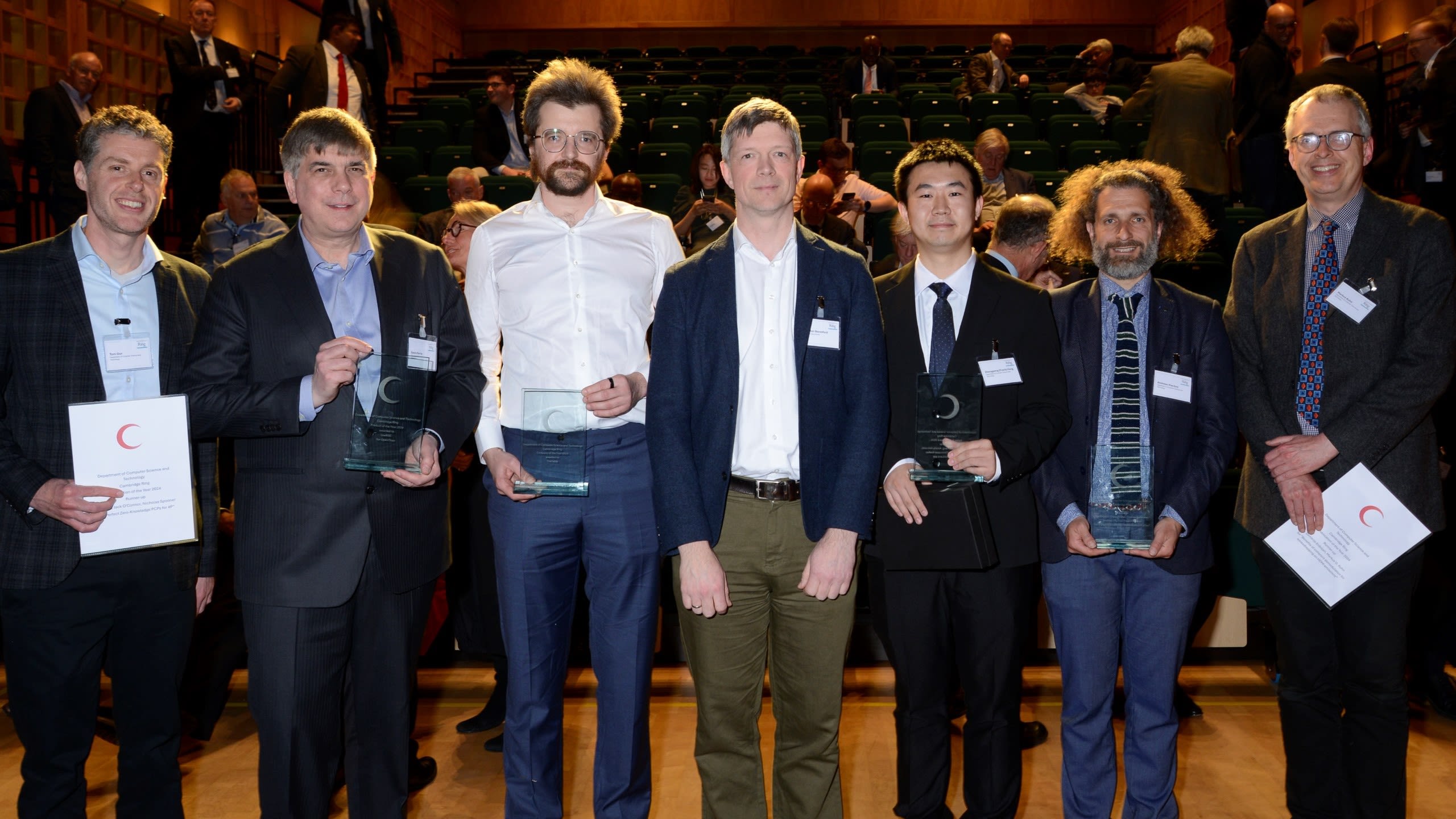
A company that uses computer vision and AI to speed up the processing of accident and disaster insurance claims. The world's first commercial-quality open-source chip. An app that measures tree trunks with a high degree of accuracy yet runs on a cheap, second-hand Android phone. And leading work by researchers on measuring how language models memorise information.
These are the winners of our 2024 Hall of Fame Awards. They were presented on Wednesday 23 April in a ceremony at Queens' College.
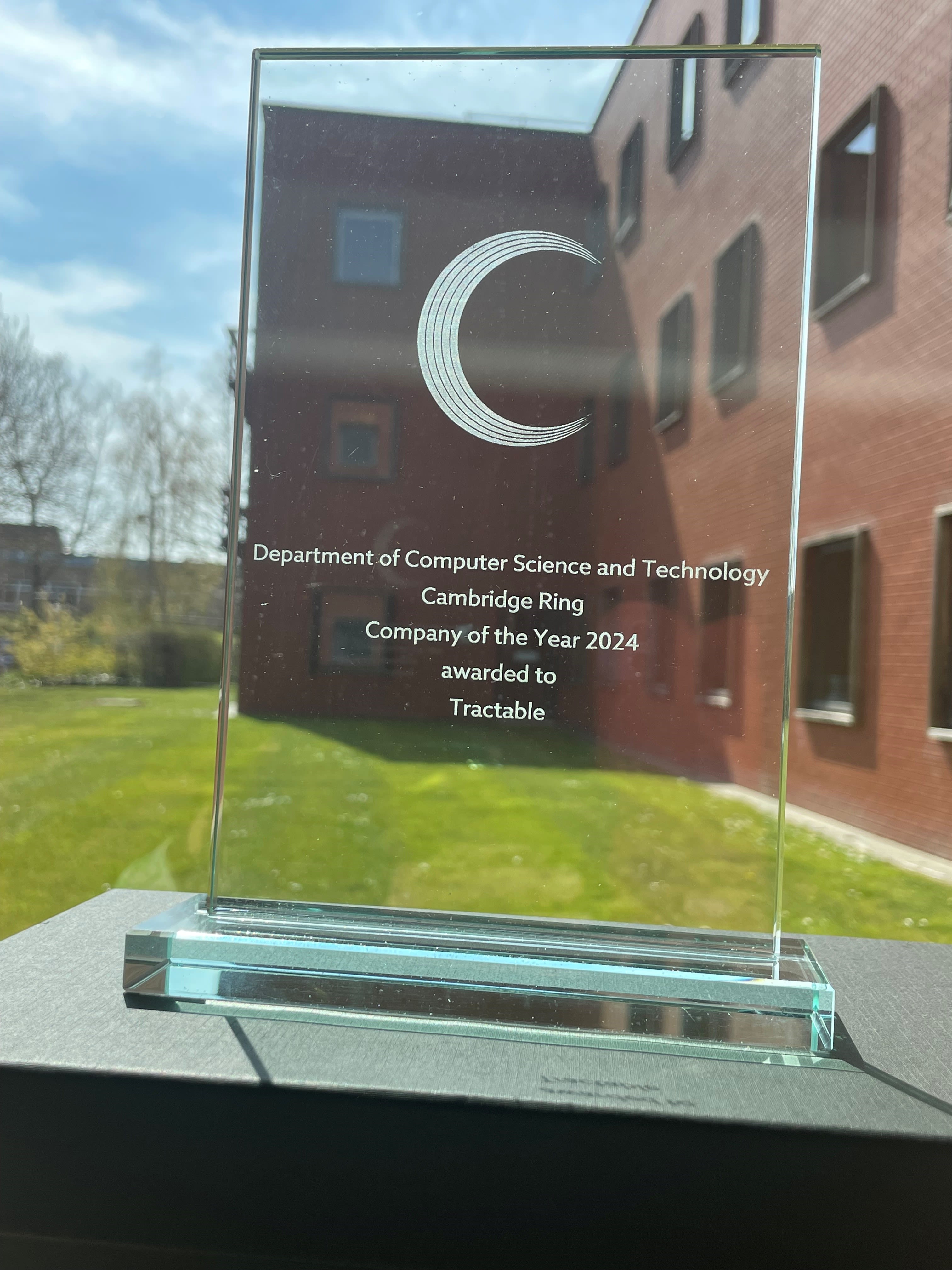
Company of the Year: Tractable
Co-founder and CTO of Tractable, our alumnus Razvan Ranca, collected the award.
Co-founder and CTO of Tractable, our alumnus Razvan Ranca, collected the award.
Company of the Year is AI 'unicorn' Tractable. Co-founded in 2014 by Alex Dalyac and our alumnus Razvan Ranca – then "two college grads coding in a basement", as they put it – the company specialises in Artificial Intelligence (AI) solutions for accident and disaster recovery. Its AI analyses images of vehicle and property damage to speed up insurance claims and assessments. Today, Tractable processes over $7 billion in auto and home repairs across millions of claims and 10+ countries, collaborating with leading insurers such as GEICO in the US and Aviva in the UK. Tractable's products can make the repair journey significantly faster, expediting key-to-key time by days for cars, and enabling insurers to pay out people affected by natural disasters in 2-3 days instead of months. Co-founder and CTO Razvan Ranca collected the award.
Better Future Award
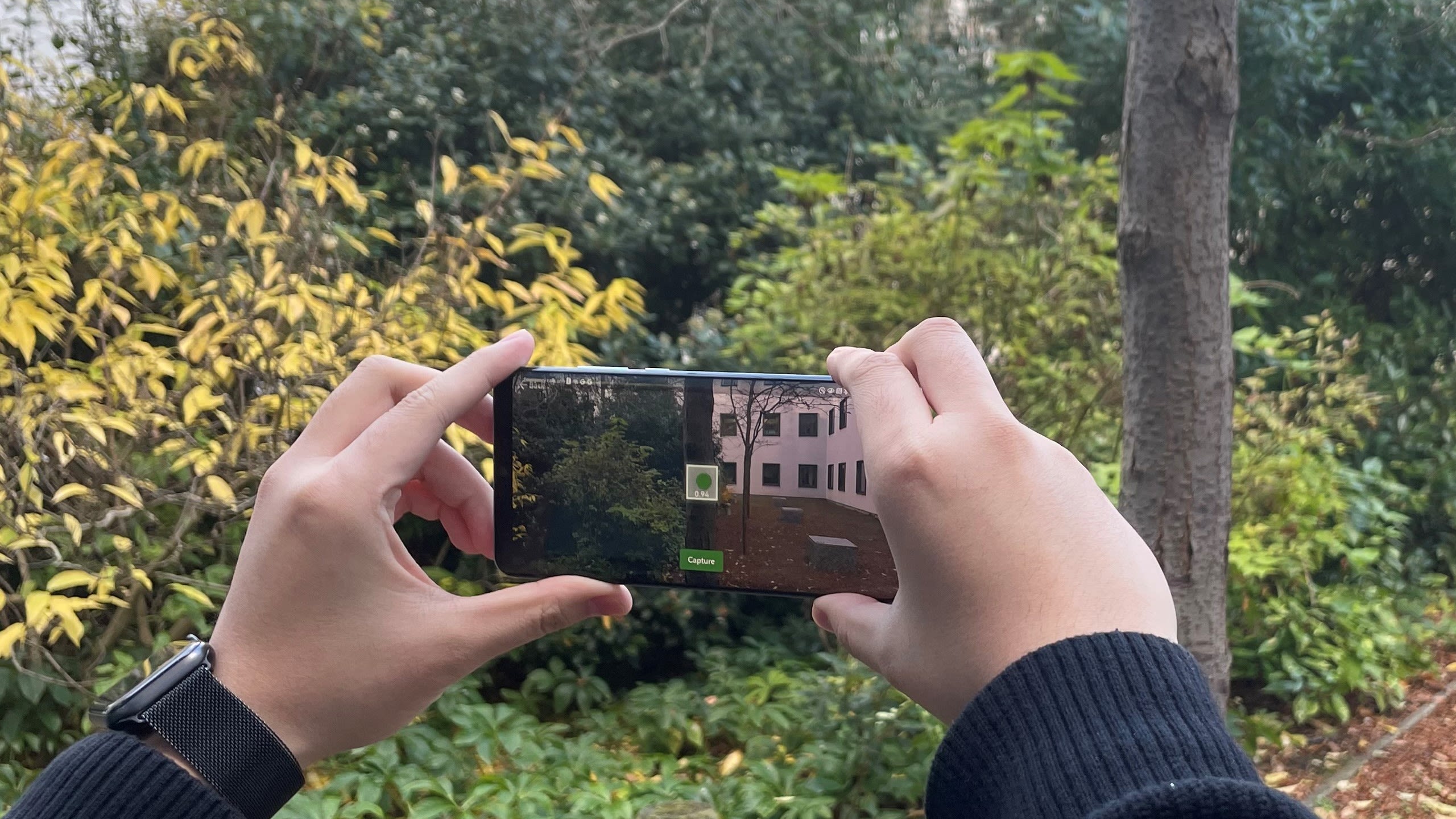
Better Future Award: the GreenLens app
The Better Future Award went to the research team behind the GreenLens app - PhD student Zhengpeng (Frank) Feng, Mingyue Xie, former PhD student Amelia Holcomb and Srinivasan Keshav, Robert Sansom Professor of Computer Science here. The app uses AI to measure the diameter of tree trunks with a high degree of accuracy – yet it runs on nothing more sophisticated than a a cheap, secondhand Android phone.
Frank Feng is a first year PhD student in the Department of Computer Science and Technology.
Frank Feng is a first year PhD student in the Department of Computer Science and Technology.
It’s aimed at anyone with an interest in protecting and restoring forests, from governments and NGOs to landowners and environmental scientists. It was first released for Android phones in 2024, intended for use by ecologists monitoring forestation efforts in East Africa where high end smartphones are unaffordable. But enthusiasm for it gathered pace after the journal Ecological Informatics published the researchers' paper on it. By the end of 2024, the GreenLens team had received interest from countries including Brazil, Romania, Scotland, Tanzania and Vietnam.
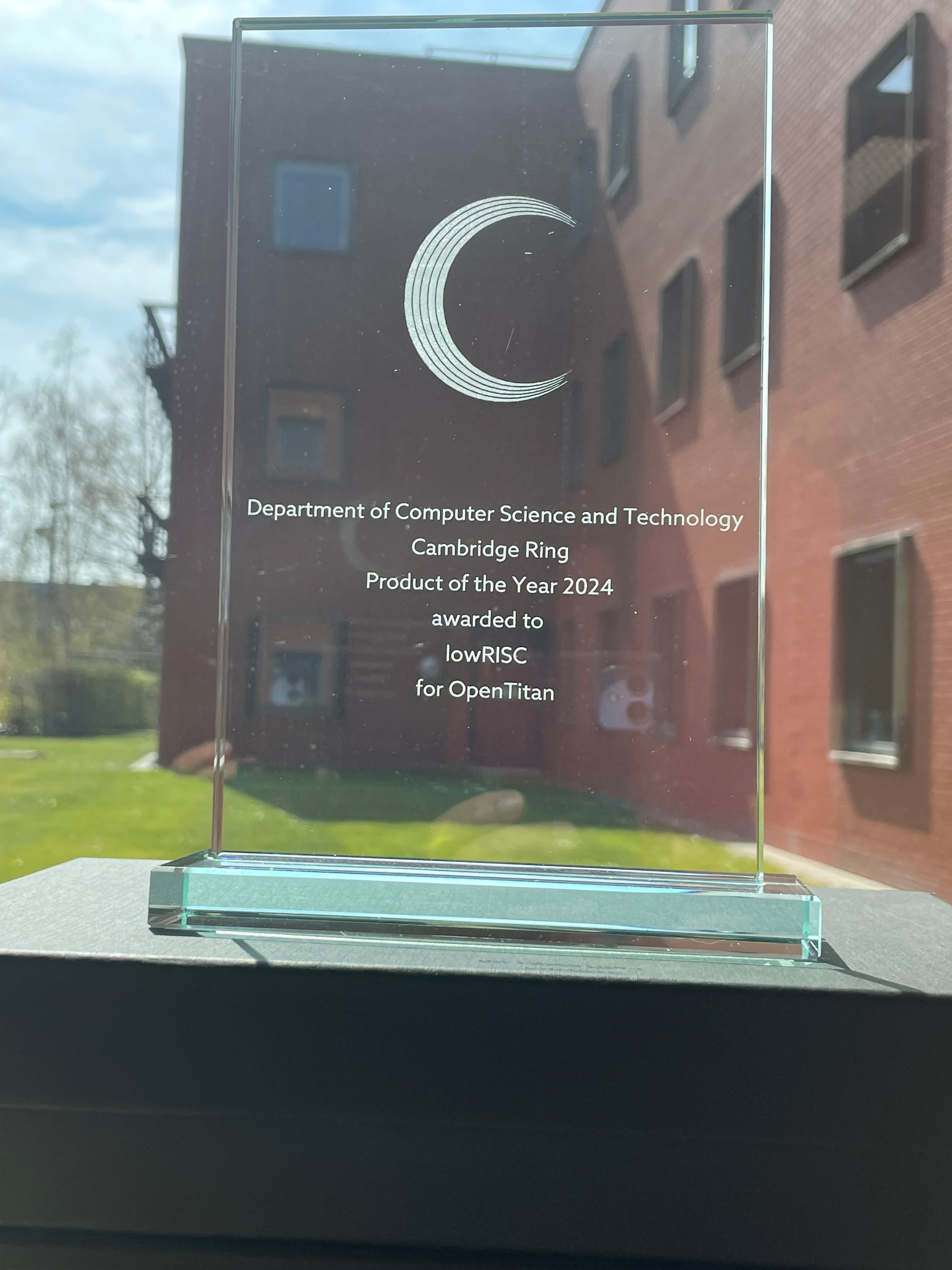
Product of the Year: OpenTitan
The Product of the Year award went to not-for-profit lowRISC for OpenTitan. lowRISC has grown into a world-class centre of excellence for secure chip design and demonstrated the value of its novel collaborative engineering business model. It particular, it has made significant contributions to OpenTitan, the world's most active open-source silicon project, which the company hosts. In 2024, OpenTitan's first silicon was successfully fabricated and Google confirmed that it would use it as the security chip in both its Chromebook laptop range and data centres. Rivos is also using it in its embedded form to secure their chiplets.
The award was collected by Gavin Ferris, co-founder and pro bono CEO of lowRISC.
The award was collected by Gavin Ferris, co-founder and pro bono CEO of lowRISC.
While open-source software has been with us for some time, Open Titan is notable as the world's first commercial-quality open-source chip. The availability of such a substantial silicon design in the open has already supported a number of start-ups, including zeroRISC, and facilitated numberous academic projects, e.g. the evaluation of new security verification tools and new formal verification techniques that have proved the correctness of lowRISC's CPU cores. The award was collected by Gavin Ferris, co-founder and pro bono CEO of lowRISC.
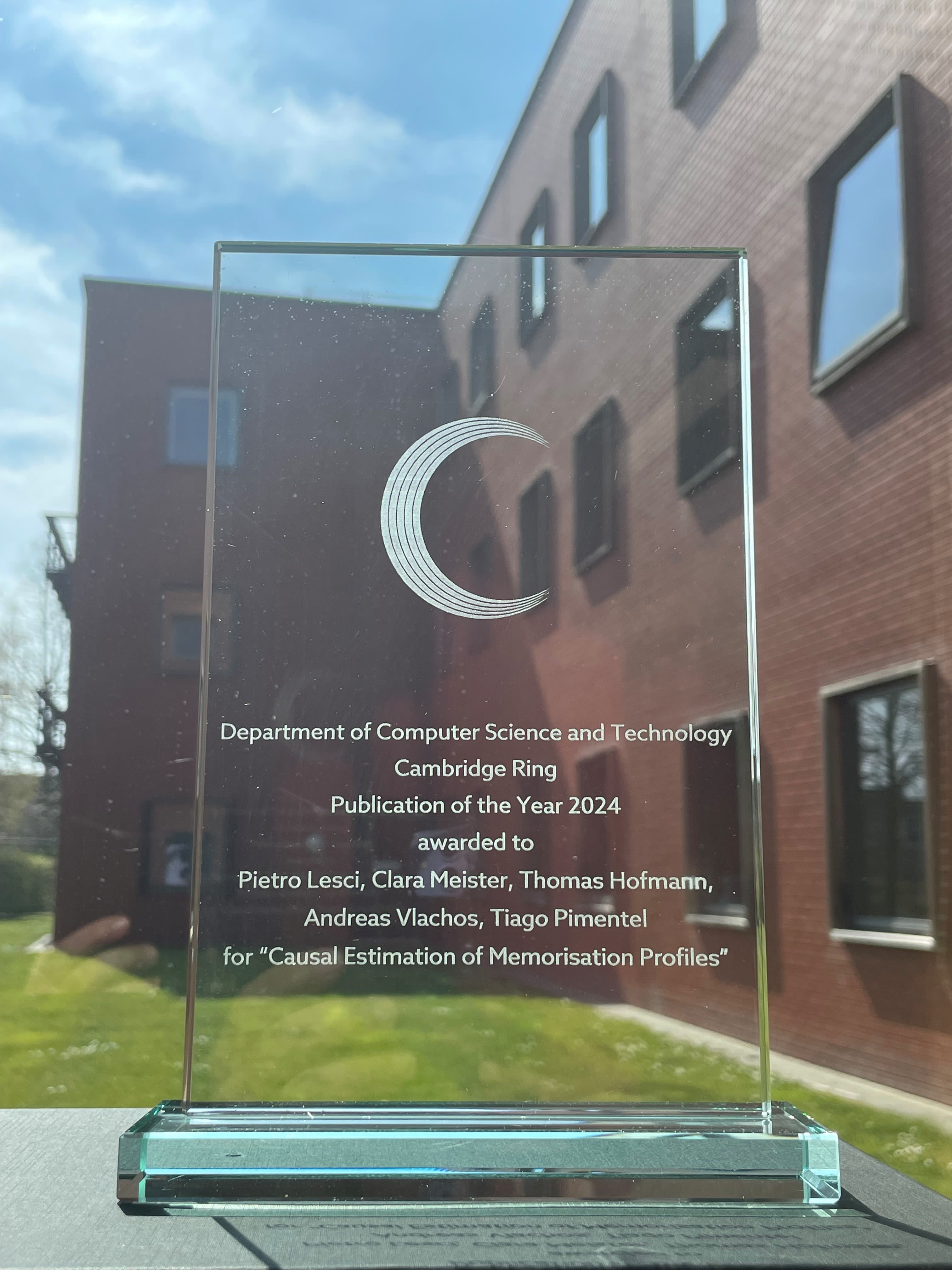
Publication of the Year: Causal Estimation of Memorisation Profiles, Pietro Lesci, Clara Meister, Thomas Hofmann, Andreas Vlachos & Tiago Pimentel.
After a Department-wide selection process in which 40 papers were submitted and considered, Publication of the Year was awarded to this paper on the 'Causal Estimation of Memorisation Profiles' for its significant contribution in an important area of research.
Prof Andreas Vlachos collected the award for Publication of the Year.
Prof Andreas Vlachos collected the award for Publication of the Year.
It's important to understand how language models memorise information, for example to better understand how they learn or to avoid copyright issues. Existing work defines memorisation as the ability of a model to predict an instance when trained with that instance. Of course, this relies on the ability to observe what would have happened if the model had not seen the instance during training. Unfortunately, existing methods struggle to produce this counterfactual in an efficient and accurate way. This paper offers a better and faster way to measure memorisation by adopting a technique from economics called difference-in-differences. The selection committee felt this was a deserving winner. The paper also won a best long paper award at the 62nd Annual Meeting of the Association for Computational Linguistics (ACL) – the premier venue in the field. First author, Pietro Lesci is a PhD student in this Department, as was fellow author Tiago Pimentel (now a postdoc at ETH Zurich). Andreas Vlachos is Professor of Natural Language Processing and Machine Learning here.
Prof Tom Gur was a runner-up for Publication of the Year.
Prof Tom Gur was a runner-up for Publication of the Year.
There were two runners-up for this award.
Tom Gur, Jack O’Connor and Nicholas Spooner for 'Perfect Zero-Knowledge PCPs for #P'
Markus Kuhn was also a runner-up for Publication of the Year.
Markus Kuhn was also a runner-up for Publication of the Year.
and Dimitrije Erdeljan and Markus Kuhn for 'Benefits of coherent demodulation for eavesdropping on HDMI emissions'
Congratulations to all our winners!





